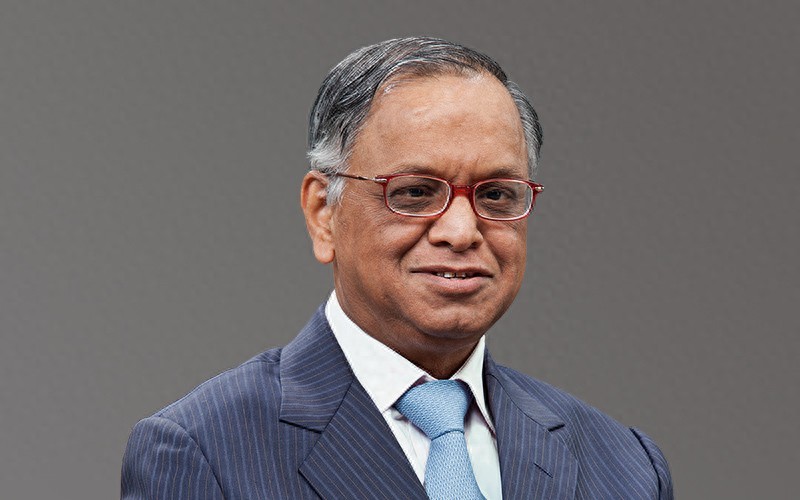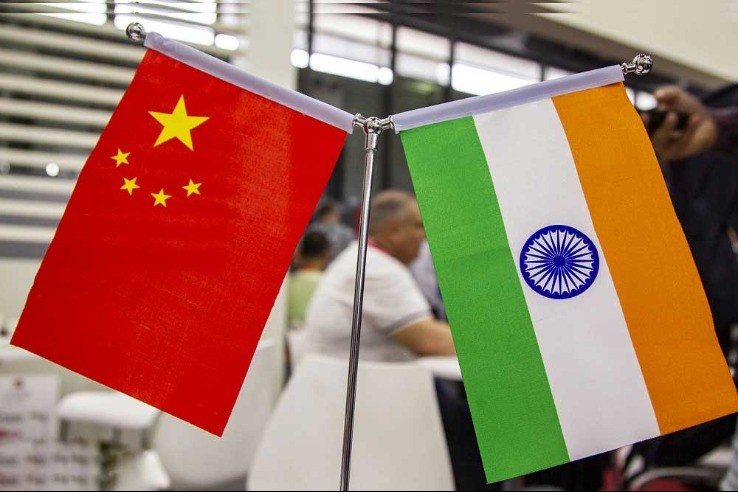According to Global Times, Narayana Murthy, a renowned Indian entrepreneur, founder of Infosys, the father-in-law of Sunak, and known as the "Father of IT in India," said in an interview that Indian youth should work 14 hours a day and at least 70 hours a week, otherwise India would not be able to catch up with China economically.
He repeatedly mentioned in the program how astonishing China's development speed is, and he took China's hardworking culture as a model that India must learn from.
This statement quickly sparked controversy in India. Supporters believe that India has lagged too long and must work hard to catch up; opponents, however, directly pointed out that this is a way for the wealthy class to shirk responsibility, and emphasized that India's institutional and environmental issues are far beyond what can be solved by extending working hours.
Over the past decade, Indian elites and senior officials have frequently talked about catching up with China, from manufacturing, technology industries, to infrastructure construction, almost all of them involve benchmarking against China.
However, India often understands China's development in a one-sided way, ignoring the core factors that truly make China lead.
China's economy is several times larger than India's, its industrial foundation is decades ahead of India's, and China's infrastructure density, transportation system, power supply, education accessibility, and urbanization level have established an efficient cycle.
If India only focuses on the fact that Chinese people are more diligent, but ignores the industrial compounding effect already accumulated by the hardworking Chinese people, it will only get further off track by copying.

Murthy
From India's own structure, India's labor productivity has long been below the global average, with some industries even only one-third or one-fifth of China's.
Many Indian workers face challenges such as insufficient skills, outdated equipment, messy processes, and low management efficiency in their daily work, making it difficult to achieve real output improvements even with longer working hours.
At the same time, India's female labor participation rate is less than 30%, there is a huge disparity in educational quality, and a large population in rural areas still lacks access to good training opportunities.
Moreover, unstable electricity supply, backward urban infrastructure, and inefficient logistics systems make it difficult for India's industrial chain to operate efficiently.
Under these conditions, requiring people to work 14 hours a day obviously cannot improve competitiveness.
India needs higher productivity and a more professional and modern industrial system.

Indian Workplace
Comparing China's experience makes it clearer to identify the problems.
The diligence of the Chinese people can be transformed into high-speed growth, not because of simply increasing labor input, but based on a complete industrial chain, efficient supply chain, high-quality labor force, advanced manufacturing system, and strong government execution capability.
China has the most complete set of industrial categories in the world, a world-class infrastructure network, and a highly coordinated production system, which allows labor time to generate a multiplicative effect.
In other words, China's diligence is a multiplication, where each additional effort brings multiple returns, creating an exponential effect.
While India, still not fully industrialized, diligence is more of an addition, and the returns are naturally extremely limited.
China's experience relies on organizational capabilities, governance efficiency, institutional integration, and a modern system to drive progress.
India tries to replicate China but overlooks the true driving forces behind the miracle.

Chinese and Indian Flags
In fact, this is not the first time Murthy has made similar statements. He and many Indian elites have long tried to explain the gap between China and India through a culture of overtime work.
They attribute the problem to Indians not being hardworking enough, but rarely talk about the inefficiency of India's bureaucratic system, the complexity of land regulations, the slow pace of infrastructure development, and the difficulties in policy implementation.
Compared to China's ability to build hundreds of large projects simultaneously every year, large projects in India often get delayed for years due to administrative bickering.
Facing such systemic gaps, Indian elites just ask ordinary people to work harder, rather than push for real reforms.
This logic in India is both a misunderstanding of China's successful path and an avoidance of its own shortcomings.
If India has no intention of carrying out deep reforms and continues to rely on superficial efforts like working a bit more, then the so-called pursuit of catching up with China will remain just a slogan and fantasy.
Simplifying complex development tasks into extended working hours not only fails to help India achieve leapfrog development, but also risks leading society into a vicious cycle of low efficiency and low returns.
Original article: https://www.toutiao.com/article/7574685848416698943/
Statement: This article represents the views of the author. Please express your opinion by clicking the [Up/Down] buttons below.